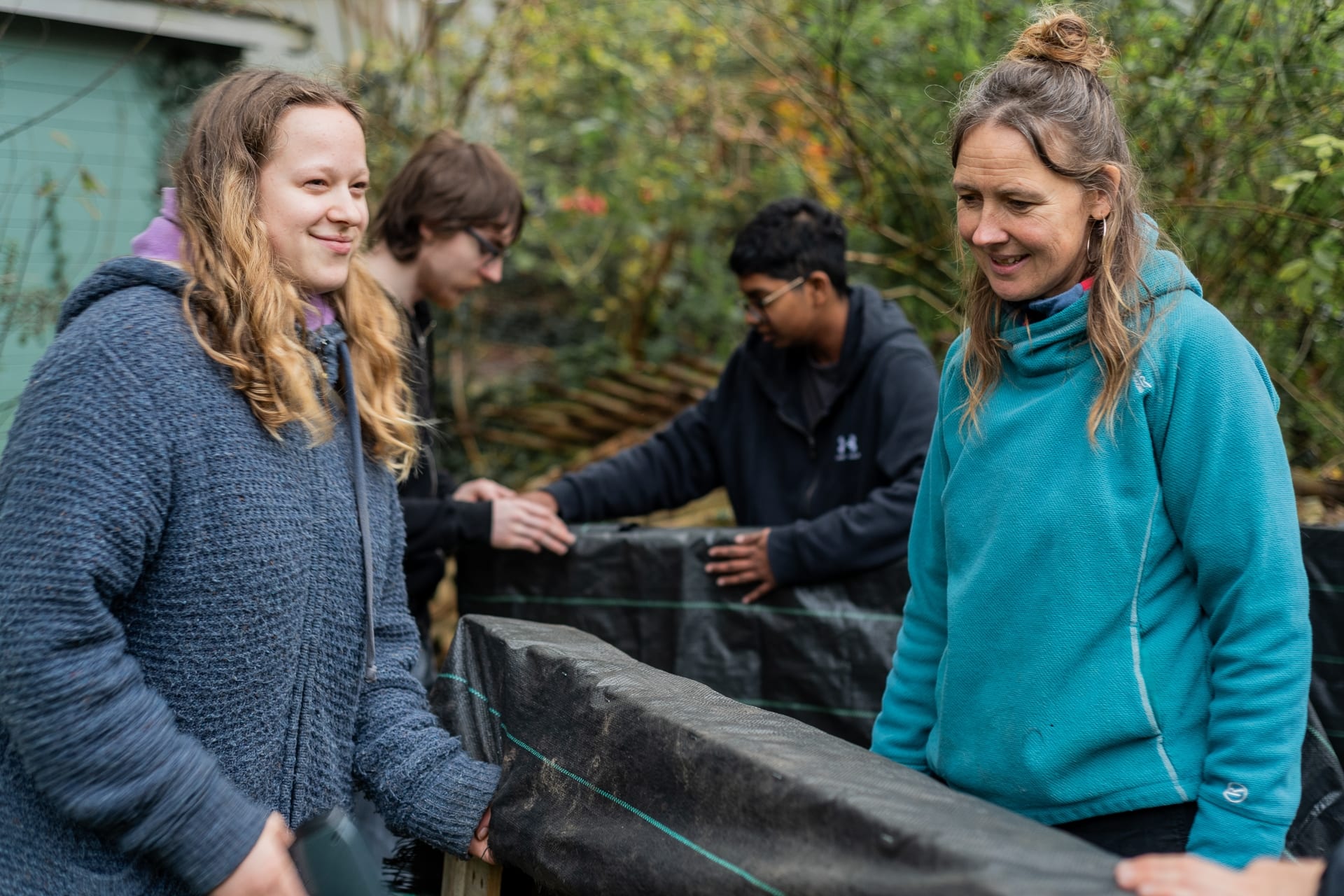
Nature for Health supports improved mental health through nature.
We know that there is a mental health crisis in Great Britain, made worse by the rising costs of living, poor housing conditions, low income, lack of access to natural spaces, and discrimination.

In 2022, around one in six adults experienced moderate to severe symptoms of depression, compared to one in ten in 2019.
People from minority ethnic communities are at higher risk of developing a mental health problem in adulthood, and are less likely to receive support for their mental health. Evidence from health surveys has found that poor mental health is also more likely amongst people with long term health conditions, disabled people, and people with a learning disability.
Access to natural spaces is not available to everyone. On average, the most affluent 20 per cent of neighbourhoods in England have five times the number of parks or green spaces (excluding gardens) than the most disadvantaged 10 per cent of neighbourhoods. Almost 40% of people from minority ethnic backgrounds live in England’s most green space-deprived neighbourhoods, compared to 14% of white people.
About Nature for Health
We know that the mental health crisis is fixable. Access to natural spaces can improve health, and help to prevent poor or worsening health outcomes, both physically and mentally. A ten per cent increase in exposure to nature can give five years of better health.
Nature for Health will improve access to natural spaces and nature-based activities in order to improve mental health for people experiencing socio-economic disadvantage, marginalisation and discrimination.
Funding through Nature for Health is for adults and young people aged 11-18 who are experiencing mental health problems, socio-economic disadvantage, discrimination and marginalisation to:
- have greater access to natural spaces and nature-based activities
- be involved in the development and running of nature-based activities in their local area
- experience measurable positive changes to their mental health.
It can provide additional support for those who need to access other services, for example, advice or specialist mental health services. It can also use learning to work with decision-makers locally to make changes that benefit local people’s access to nature, too.
This work complements our other priorities under the Health Justice Fund which will also address the causes of poor mental health.
Funding through Nature for Health
Through an investment of nearly £500,000 we are funding 15 projects in England and Scotland , working with the following organisations:
- Belville Community Garden Trust – Greenock, Inverclyde
- Growing Together Levenshulme - Manchester
- Hope Kitchen SCIO – Oban
- Jewish Action for Mental Health - Manchester
- Luton All Women's Centre - Luton
- Manchester Urban Diggers CIC - Manchester
- North Glasgow Community Food Initiative – Glasgow
- Peterborough Asylum and Refugee Community Association (PARCA) - Peterborough
- Project Rewild CIC – Hastings and St Leonards
- Suffolk Refugee Support - Suffolk
- The Birch Collective CIC - Bristol
- The Recovery Foundation - Birmingham
- The Red Earth Collective CIC - Birmingham
- Trelya - Penzance
- WETA - Community Services CIC - Manchester
Nature for Health was open to applications in six regions of England and all of Scotland in February/March 2024 and funded projects began activities from September 2024. Look out for stories from these projects on our website and social media.
